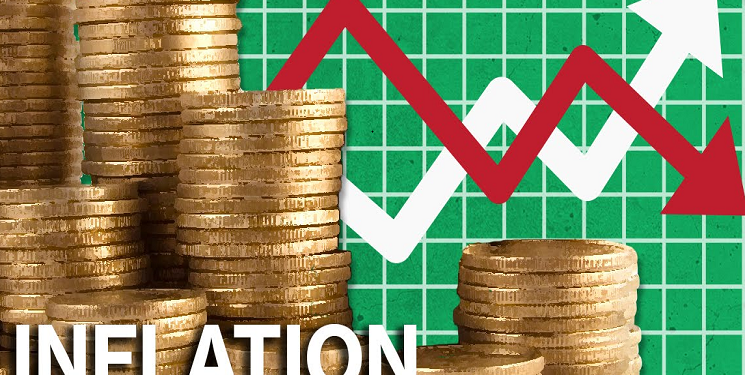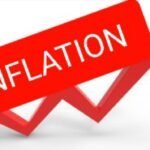The Inflation rate in Nigeria has risen for the fourteenth consecutive time in October 2020. According to the report released by the National Bureau of Statistics, the Consumer Price Index (CPI) which measures inflation increased by 14.23% percent year on year in October 2020.
October inflation is 0.52 percent higher than 13.71 percent recorded in September 2020. The inflation in Nigeria rate was 13.22 percent in August 2020.
October inflation rate is the highest that has been recorded in Nigeria since March 2018. The record was previously held by the September inflation rate.
However, several Nigerians are not convinced with the data considering the current hike in prices of goods and services in the country.
On a month-on-month basis, the Headline index increased by 1.54 percent in October 2020, this is 0.06 percent rate higher than the rate recorded in September 2020 (1.48 percent).
Increases were recorded in all 12 Classification of Individual Consumption by Purpose (COICOP) divisions that yielded the Headline index, such as food and non-alcoholic beverages; clothing and footwear; housing, water, electricity, gas; health; transport, communication. This has been the case since July.
The composite food index rose by 17.38 percent in October 2020 compared to 16.66 percent in September 2020. This rise in the food index was caused by increases in prices of bread and cereals, potatoes, yam, and other tubers, meat, fish, fruits, vegetables, alcoholic and food beverages, and Oils and Fats.
On a month-on-month basis, the food sub-index increased by 1.96 percent in October 2020, up by 0.08 percent points from 1.88 percent recorded in September 2020
According to the report, the average annual rate of change of the Food sub-index for the twelve months ending October 2020 over the previous twelve-month average was 15.42 percent, representing a 0.29 percent points from the average annual rate of change recorded in September 2020 (15.13) percent.
On a month-on-month basis, the core sub-index increased by 1.25 percent in October 2020. This was up by 0.31 percent when compared with 0.94 percent recorded in September 2020.
The ”All items less farm produce” or Core inflation, which excludes the prices of volatile agricultural produce stood at 11.14 percent in October 2020, up by 0.56 percent when compared with 10.58 percent recorded in September 2020.
The highest increases were recorded in prices of passenger transport by air, hospital and medical services, passenger transport by road, pharmaceutical products, motor cars, vehicle spare parts, maintenance and repair of personal transport equipment, hairdressing salons and personal grooming establishments, miscellaneous services relating to the dwelling, paramedical services, and shoes and other footwear.
In October 2020, all items inflation on year on year basis was highest in Zamfara (17.69%), Sokoto (16.99%), and Ebonyi (16.91%), while Lagos (11.96%), Abuja (11.84%), and Cross River (10.50%) recorded the slowest rise in headline Year on Year inflation.
On a month-on-month basis, however, in October 2020, all items inflation was highest in Sokoto (2.91%), Edo (2.53%), and Akwa Ibom (2.52%), while Oyo (0.69%), Taraba (0.60%), and Jigawa (0.37%) recorded the slowest rise in headline month on month inflation.
- Read also; TY Danjuma’s TY Holdings Limited to acquire BOC Gases Nigeria Plc
- RCEP: The World’s largest trading bloc formed by Asia-Pacific Countries
In October 2020, food inflation on a year-on-year basis was highest in Edo (21.65%), Zamfara (20.88%), and Kogi (20.58%), while Lagos (14.57%), Ogun (14.47%), and Ondo (14.23%) recorded the slowest rise.
On a month-on-month basis, however, October 2020 food inflation was highest in Kwara (3.88%), Edo (3.81%), and Sokoto (3.65%), while Oyo (0.57%) and Jigawa (0.54%) and Taraba (0.29%) recorded the slowest rise on month-on-month inflation.
Naira value fell at the parallel market on Monday against all major currencies. Naira fell to N475 per U.S dollar against N470 it exchanged on Friday. Similarly the exchange rate stood at N607 per British Pounds against N600 on Friday and N553 per Euro against N545 on Friday.
Since Nigeria is an import-dependent economy, it is hard to see an end to the rising inflation rate in the country as the nation’s currency continues to depreciate due to reduced access to forex. The Nigerian government needs to take the diversification of the economy seriously to reduce the over-dependence of the country oil for foreign currency.
The government and the CBN need to take decisive action to reign in the hiking inflation rates.
By; Ifunanya Ikueze






















































